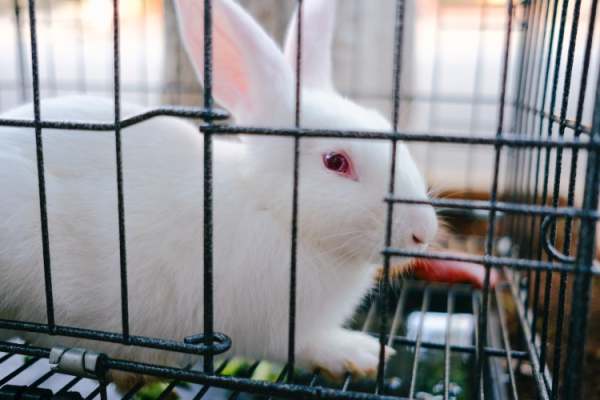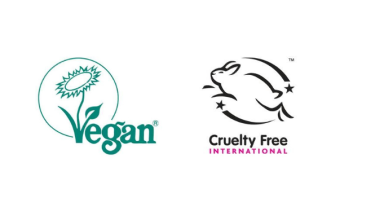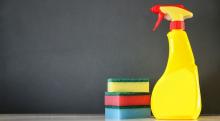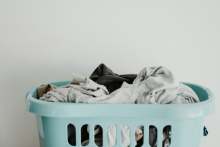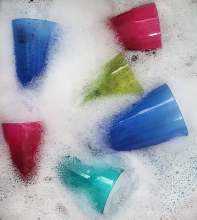You may not find milk or fish listed on the back of a kitchen spray or toilet cleaner, but many chemicals can still be derived from animal products. Ingredients in cleaning products are also routinely tested on animals.
Luckily, there are a growing number of fully vegan brands, and certifications to help you find them.
What animal ingredients are in cleaning products?
There are a few common types of ingredients found in cleaning products, which may have been derived from animals. These include:
- Beeswax (can also be called 'cera alba')
- Caprylic acid (from milk)
- Glycerol (from animal fats)
- Lanolin (from sheep's wool)
- Lecithin (from eggs, milk or tissue)
- Oleyl alcohols (from fish)
- Steric acid (derived from animal fats)
- Tallow (from beef fat)
However, unless the product is marked with a ‘Vegan’ label, it can be almost impossible to tell whether or not it includes animal ingredients. Even if an ingredients list does not include any of the above animal products exactly as written, it may still include their derivatives. Many of them have variations that come with a multitude of different titles. For example, polyglycerol and glycerides are derivatives of glycerol, and oleths and Ocenol are types of oleyl alcohols.
Peta has a list of over 100 animal ingredients that can be found in consumer products.
Conversely, many of the ingredients listed above can also be made from vegan sources. For example, lecithin can be made from soybeans, sunflower seeds, or a number of other plant-based products.
Which cleaning brands contain animal products?
If a cleaning product isn’t marked as vegan, there is a high risk that it could contain animal ingredients such as those listed above.
Many well-known brands like Cillit Bang, Vanish and Flash are not marked as vegan.
Some brands are owned by companies that sell factory farmed meat and dairy in other parts of their business. For example, Unilever owns Cif, Domestos and Lifebuoy cleaning products, alongside well-known ice cream brands Ben & Jerry’s and Walls.
So while some products may be vegan, the companies most certainly aren’t.

